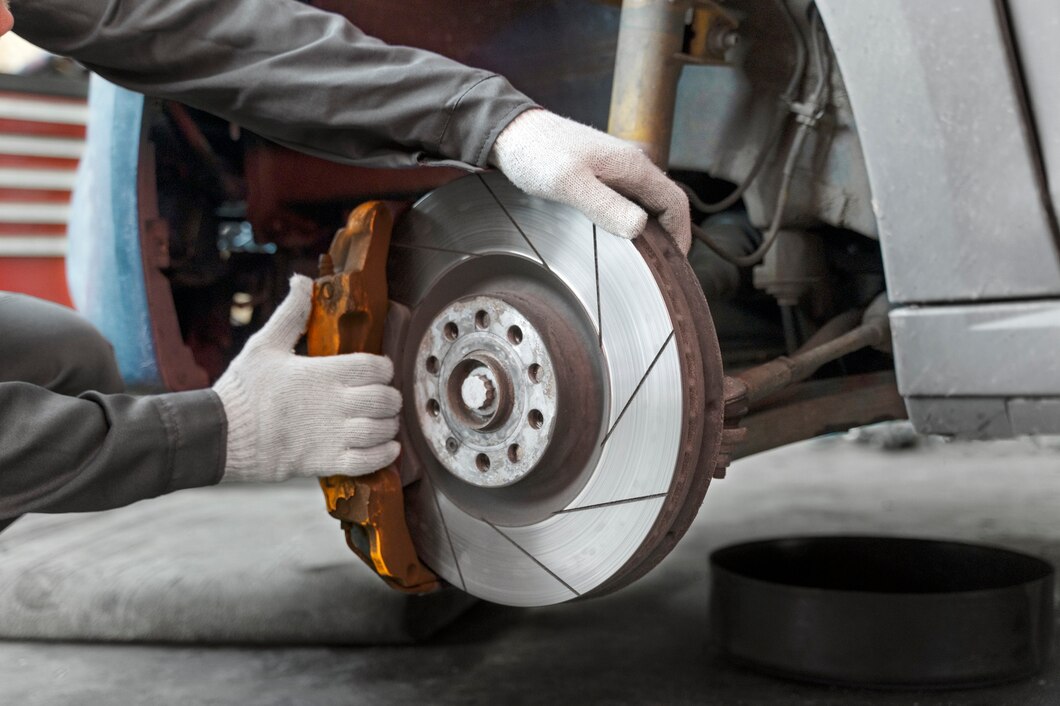Maintaining your vehicle’s braking system is crucial for ensuring your safety and the safety of others on the road. Among the key components of this system are the brake rotors. Over time, rotors can wear down or become damaged, compromising your car’s braking efficiency. Recognizing the early signs that your car needs new rotors can help you address issues promptly, avoiding more extensive damage and ensuring optimal performance. Here are some indicators that it might be time to replace your rotors.
1. Squealing or Squeaking Noises
One of the most common early signs that your rotors may need replacement is hearing high-pitched squealing or squeaking noises when you apply the brakes. This noise is often caused by the brake pads rubbing against uneven or worn rotor surfaces. While sometimes a simple brake pad replacement can solve the issue, persistent noise after replacing the pads often indicates rotor wear.
2. Vibrations When Braking
If you notice your steering wheel or brake pedal vibrating when you apply the brakes, this can be a clear indication of warped rotors. Warping occurs due to excessive heat build-up, often from aggressive braking or descending steep hills frequently. This distortion prevents the rotors from maintaining a uniform surface, causing vibrations during braking.
3. Increased Stopping Distances
Worn or damaged rotors can reduce your vehicle’s braking efficiency, leading to increased stopping distances. If you find that your car takes longer to come to a complete stop than it used to, it’s a sign that your rotors, along with other braking components, may need inspection and possible replacement.
4. Grooves or Score Marks on Rotors
Visually inspecting your brake rotors can also reveal signs of wear. If you notice deep grooves, score marks, or an uneven surface, this can indicate significant rotor wear. These grooves can form due to prolonged use of worn-out brake pads, which can cut into the rotor’s surface, compromising its effectiveness.
5. Brake Pedal Feels Soft or Spongy
A soft or spongy brake pedal can be a symptom of several issues within the braking system, including rotor problems. When the rotor’s surface is uneven or excessively worn, it can cause inconsistencies in braking pressure, resulting in a soft or spongy feel when you press the brake pedal.
6. Scraping or Grinding Sounds
A more severe sign that your rotors need immediate attention is hearing scraping or grinding sounds when braking. This noise typically indicates that the brake pads have worn down completely, allowing metal-to-metal contact between the caliper and the rotor. Such contact can severely damage the rotor surface, making replacement necessary.
7. Rust and Corrosion
While some surface rust on rotors is normal, especially if the car has been sitting for a while, excessive rust or corrosion can indicate that the rotors need replacing. Rust can create an uneven surface, leading to braking inefficiency and potentially compromising the rotor’s structural integrity.
Regularly inspecting your vehicle’s braking system and being aware of these early signs can help you identify when your car needs new rotors. Promptly addressing rotor issues not only ensures your safety but also helps maintain the overall performance of your vehicle. If you experience any of the symptoms mentioned, it’s advisable to consult a professional mechanic for a thorough inspection and necessary repairs. Remember, maintaining your brake rotors is key to ensuring reliable and safe braking performance.











